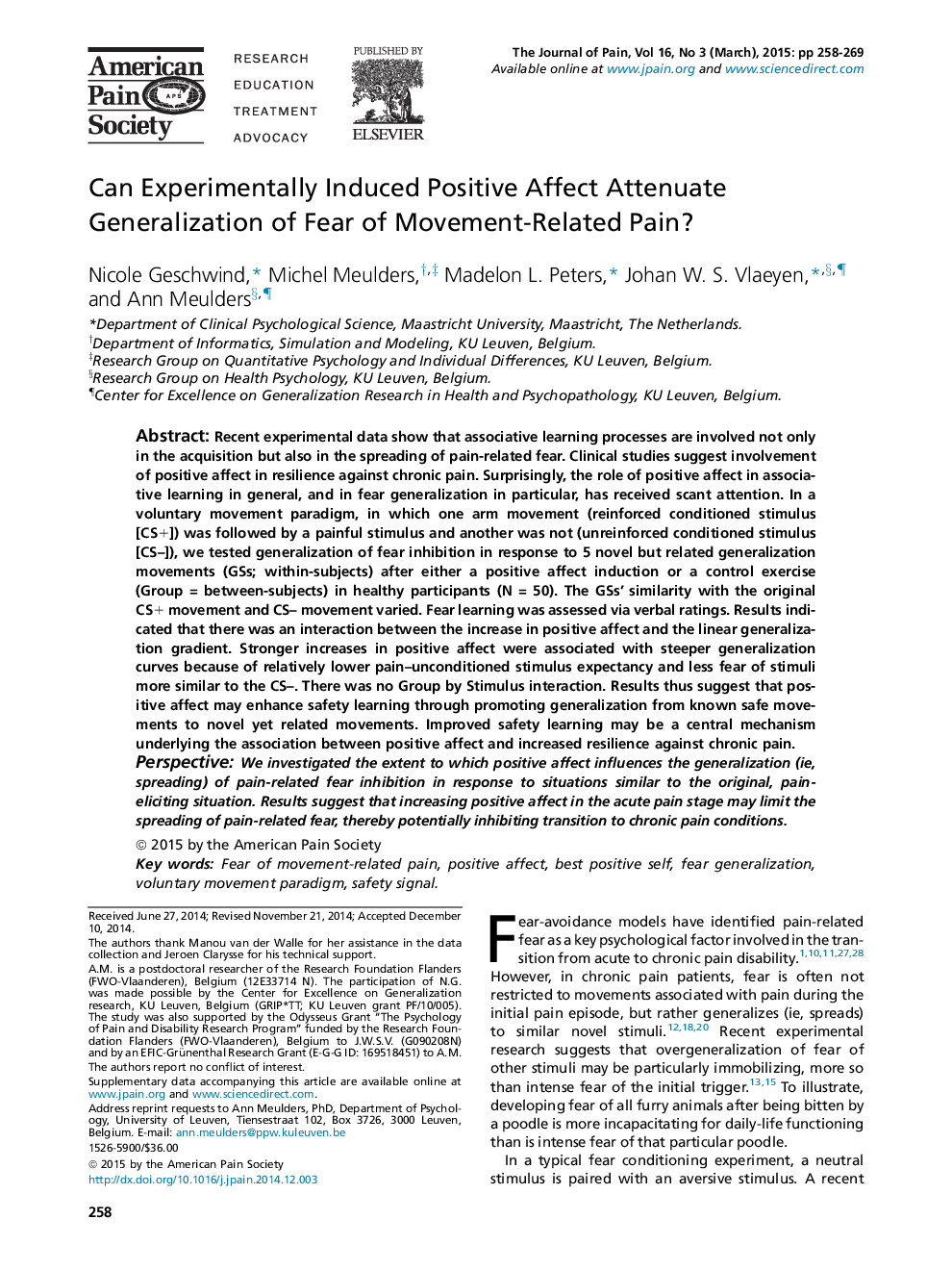| کد مقاله | کد نشریه | سال انتشار | مقاله انگلیسی | نسخه تمام متن |
|---|---|---|---|---|
| 2728583 | 1566736 | 2015 | 12 صفحه PDF | دانلود رایگان |
• Positive affect (PA) might be involved in resilience against chronic pain.
• Stronger increases in PA are associated with steeper fear generalization gradients.
• This is due to better fear inhibition in response to movements resembling the original safe movement.
• Steeper generalization gradients are not associated with more spreading of fear inhibition in response to movements resembling the original painful movement.
• PA may improve safety learning by promoting generalization from safe to novel movements.
Recent experimental data show that associative learning processes are involved not only in the acquisition but also in the spreading of pain-related fear. Clinical studies suggest involvement of positive affect in resilience against chronic pain. Surprisingly, the role of positive affect in associative learning in general, and in fear generalization in particular, has received scant attention. In a voluntary movement paradigm, in which one arm movement (reinforced conditioned stimulus [CS+]) was followed by a painful stimulus and another was not (unreinforced conditioned stimulus [CS–]), we tested generalization of fear inhibition in response to 5 novel but related generalization movements (GSs; within-subjects) after either a positive affect induction or a control exercise (Group = between-subjects) in healthy participants (N = 50). The GSs' similarity with the original CS+ movement and CS– movement varied. Fear learning was assessed via verbal ratings. Results indicated that there was an interaction between the increase in positive affect and the linear generalization gradient. Stronger increases in positive affect were associated with steeper generalization curves because of relatively lower pain–unconditioned stimulus expectancy and less fear of stimuli more similar to the CS–. There was no Group by Stimulus interaction. Results thus suggest that positive affect may enhance safety learning through promoting generalization from known safe movements to novel yet related movements. Improved safety learning may be a central mechanism underlying the association between positive affect and increased resilience against chronic pain.PerspectiveWe investigated the extent to which positive affect influences the generalization (ie, spreading) of pain-related fear inhibition in response to situations similar to the original, pain-eliciting situation. Results suggest that increasing positive affect in the acute pain stage may limit the spreading of pain-related fear, thereby potentially inhibiting transition to chronic pain conditions.
Journal: The Journal of Pain - Volume 16, Issue 3, March 2015, Pages 258–269
